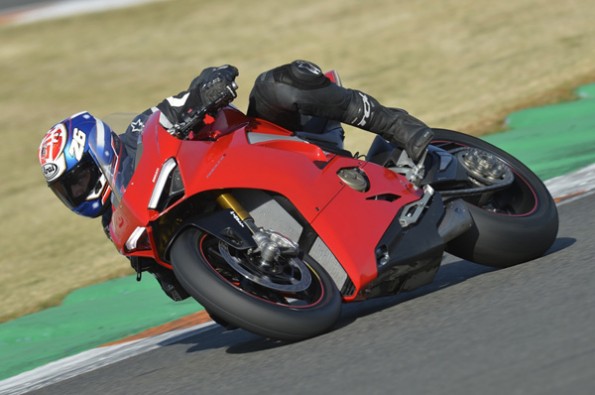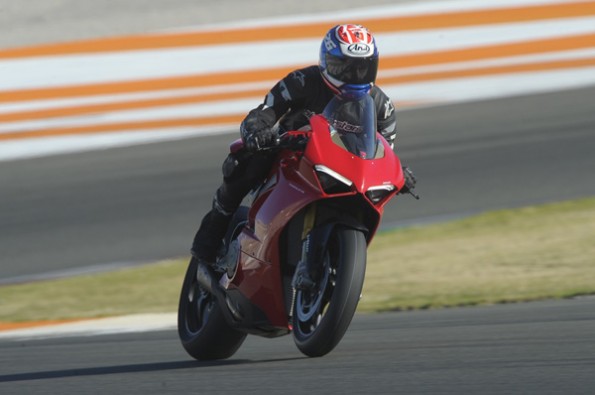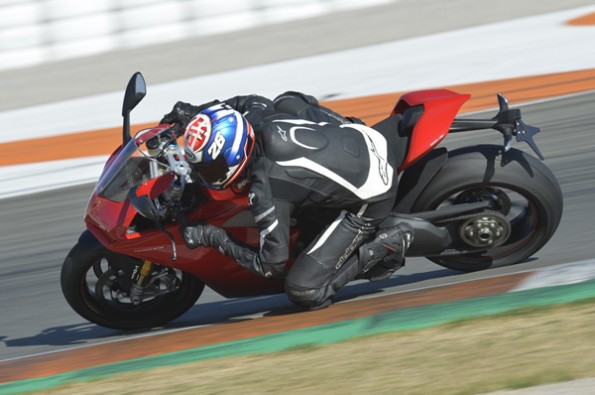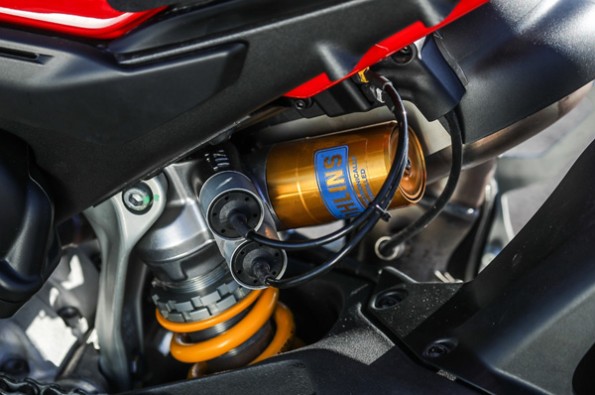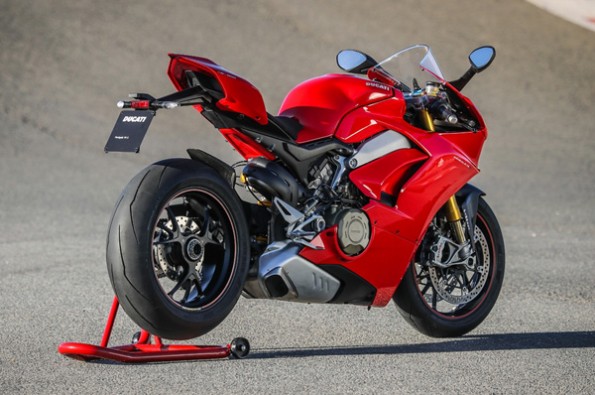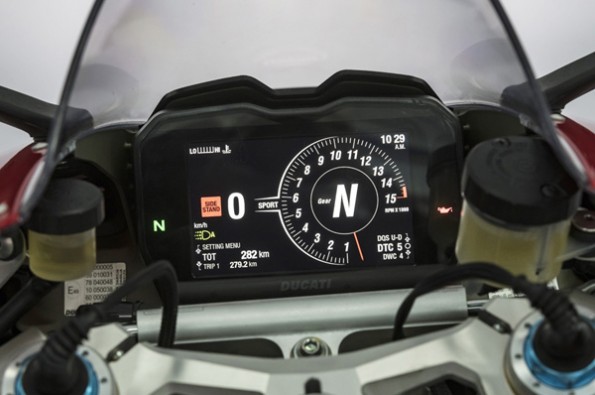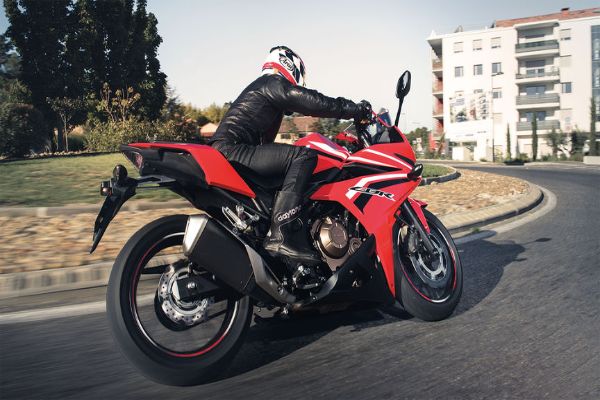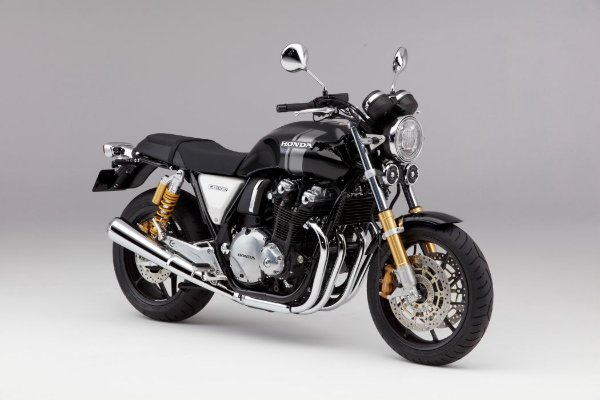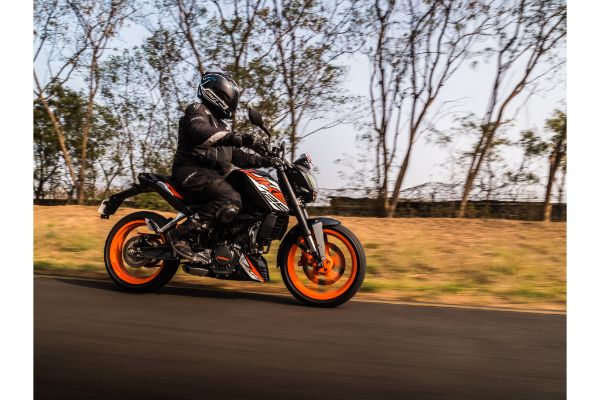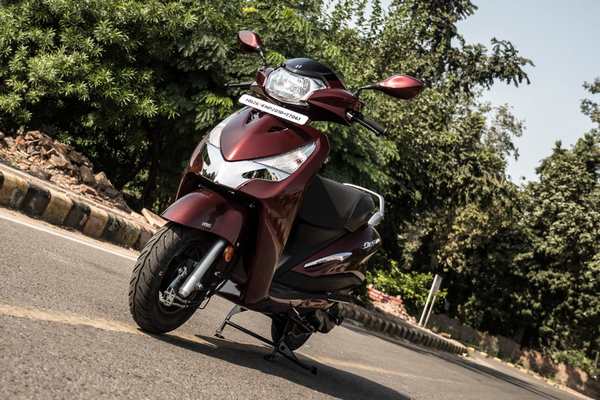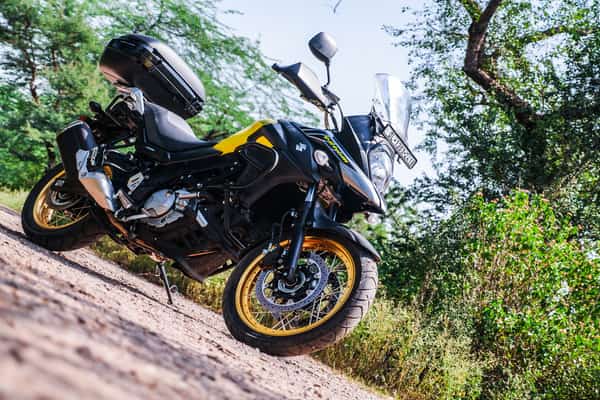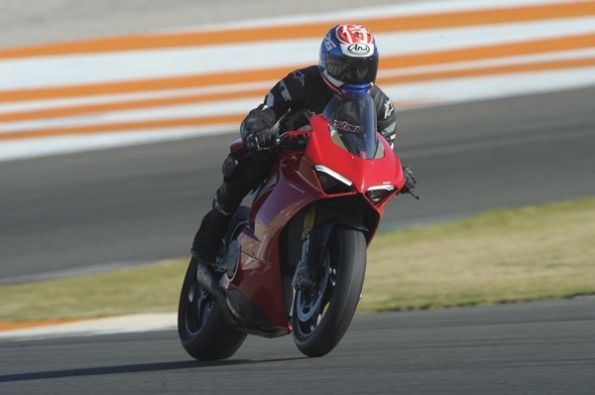
When Ducati first announced the new Panigale, people were blown away by the bike’s performance figures. The peak power figure of 214hp makes it the most powerful production motorcycle available. Moreover, that power figure can further be increased to 226hp with an optional aftermarket exhaust and engine remap. The bike also comes with a reworked chassis and high-tech electronics. We rode it at a racetrack in Spain and were left truly impressed.
The Valencia circuit is known for its technical corners. The Ducati does continue to look like the older Panigale but, its lines are considerably more aggressive. Under the good-looking bodywork is the Italian bikemaker’s new frame, this frame replaces the monocoque that was seen on the older bikes. The monocoque was stiff, which made the bike difficult to ride at high speeds.
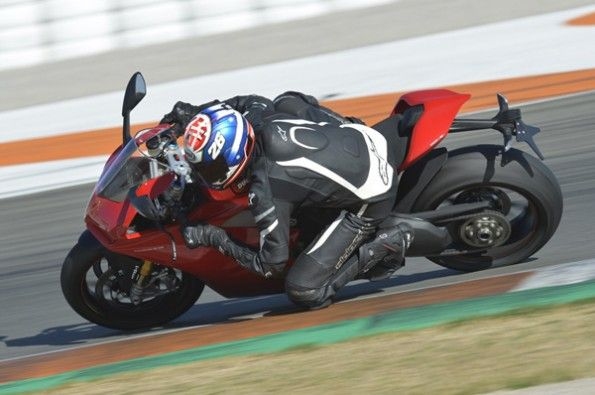
This frame however, is not a conventional perimeter frame. To keep the weight down, the company developed a new front-frame concept. This is a small frame mounted to the front of the V4, while the rear bank is paired to the rear sub-frame and swingarm. This new frame helps keeps the new bike’s kerb weight down to 195kg – just 4.5kg heavier than the older V-twin Panigale. The switch from the V-twin to V4 was a big one for Ducati. This decision was made because the V-twin engines were constantly getting larger and were getting difficult to accommodate.
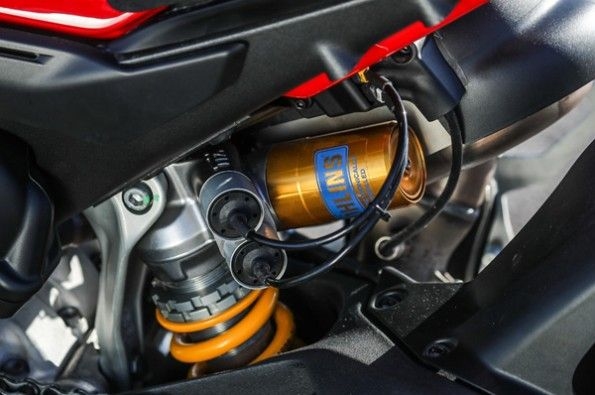
Getting back to the motor, it is now considerably smaller in terms of height and length however, it is wider by 43mm. interestingly, the motor has been rotated backwards by 42 degrees, which increases room and allows for larger radiators. MotoGP tech like the 90-degree V-angle and twin-pulse firing order are also seen in this new Panigale. It is a 1,103cc engine that puts out enough torque for use on the road as well. However, a 1,000cc race variant will be developed to meet regulations of the WSBK series by 2019.
Another big feature of this new V4 engine is the counter-rotating crankshaft, which spins in the opposite direction of the rear wheel. This works against the gyroscopic effect of the wheel movement and results in better agility. Furthermore, it works against inertia and helps keep the front wheel down during hard acceleration.
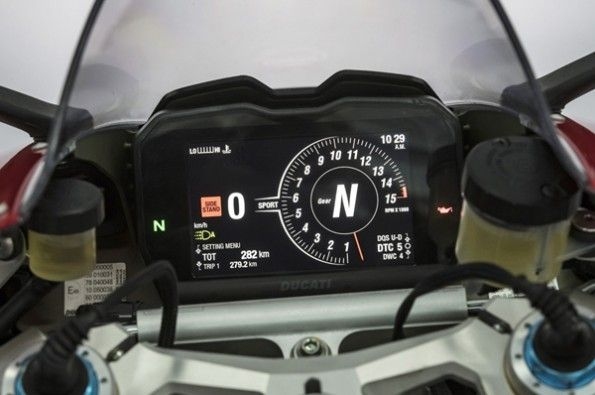
Both the V4 and V4 S are powered by the same motor, and it makes 214hp and 124Nm of torque. This engine is a high revving motor with a high compression ratio, meaning it will require high-octane fuel. Once you start the motor, you instantly notice that it sounds similar to the manufacturer’s V-twins. This mechanical sounding idle turns into an angry bark at higher rpms typical of a Ducati motor. The Panigale moves incredibly quickly, pulling hard above 8,000rpm. The bike is so powerful that it is quite difficult to hold on under heavy acceleration, even at 285kph. The Ducati also has predictable throttle response that delivers power in a smooth fashion. The V4 is surprisingly smooth, similar to a Japanese in-line four.
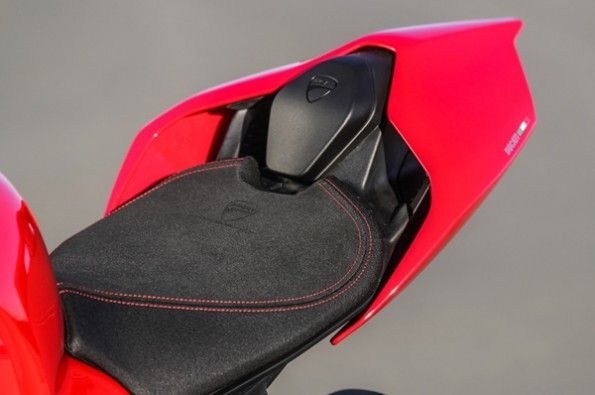
The handling is the best we have seen on a Ducati, it turns in quickly and the front-end has a lot more feedback than other Ducati bikes. We believe the counter-rotating crank has a lot to do with this. The brakes are the finest we have ever used; this Ducati is the first bike to have Brembo’s new Stylema callipers. These callipers are impressive and delivers good feel. Lastly, the incredibly advanced electronics like Slide-by-Brake, Slide Control, Anti-Wheelie and a lot more. The bike also features a new 5.0-inch colour display.
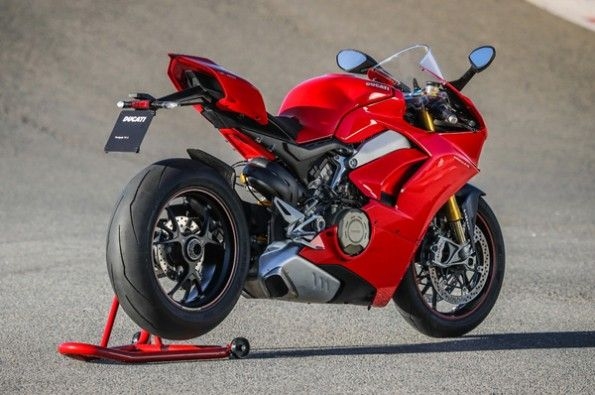
Should I buy one?
The Panigale V4 is a true exotic, in every sense of the word. It’s beautiful to look at and is extremely quick. Moreover, the bike is also advanced and easy to use, a quality very few exotics possess. However, the best part about this bike is the price. Since it is now assembled in Thailand, the Indian pricing for the V4 and V4 S stands at ₹20.53 lakh and ₹25.29 lakh, respectively. But, India will only get 20 units for 2018.
